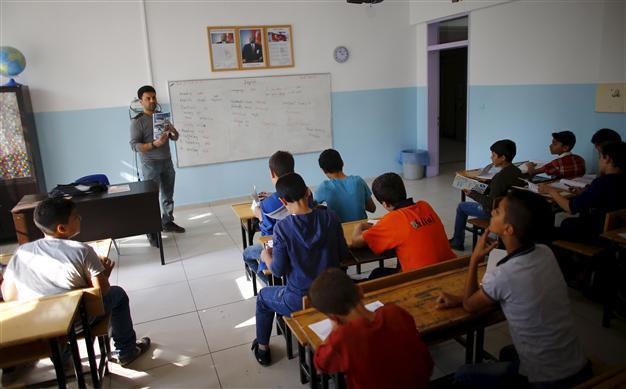Arabic to be offered as second language in Turkish elementary schools
ANKARA

Reuters Photo
Elementary school students in Turkey will be given the option to choose Arabic as a second language as of the 2016-2017 school year, in addition to the already offered English, French and German, state-run Anadolu Agency has reported Education Ministry officials as saying.
The officials said foreign language courses have been taught to elementary school students from second through eighth grade according to the Primary Education Weekly Course Schedule, which has been in force since the 2013-2014 school year.
Currently English, French and German are being offered to elementary school students. These languages were decided upon by a ministerial cabinet’s decision, while the curriculum of these courses took effect after being approved by the Turkish Education Board.
In this aspect, the Arabic curriculum has also been prepared within the concept of the foreign languages offered to students as part of the Primary Education Weekly Course Schedule.
If chosen by students, Arabic will gradually be offered at schools as of the 2016-2017 school year.
Officials said that the curriculum for Arabic was prepared with a focus on listening-comprehension, speaking, reading and writing skills and the Common European Framework of Reference for Languages was taken into consideration during its preparation.
Second- and third-graders will start learning Arabic by listening-comprehension and speaking, while introduction to writing will join these skills in fourth grade and fifth grade students will start learning the language in all its four basic skills.
The teaching has also been constructed on themes, which will start with eight basic themes in second grade, including “my family,” “my school and friends,” “numbers,” “vegetables and fruits,” “colors,” “animals,” “seasons” and “parts of the body.”
